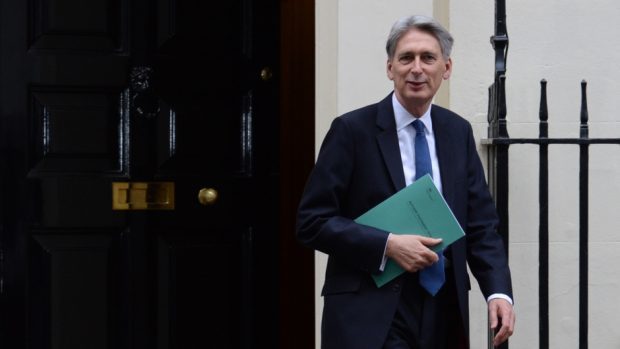The UK Government was accused of having no plan or answers last night, with Brexit branded the elephant in the room.
SNP Treasury spokesman Stewart Hosie claimed Philip Hammond had failed to provide anything of substance related to the UK’s departure from the EU.
And he branded the Autumn Statement “an admission of six years of Tory failure on the economy”.
Labour’s shadow chancellor John McDonnell agreed it placed on record the “abject failure of the last six wasted years” and offered “little hope for the future”.
“The figures speak for themselves,” he added. “The verdict could not be clearer. The so-called ‘long term economic plan’ has failed.
“And we now face Brexit, the greatest economic challenge of a generation, unprepared.”
Liberal Democrat Northern Isles MP Alistair Carmichael said the figures painted a “bleak outlook for the economy”.
He added: “Brexit is proving to carry a heavy price tag for the chancellor.”
Poverty campaigners were also quick to criticise Mr Hammond.
Peter Kelly, director of Poverty Alliance, said “a few eye catching announcements” should not create a “false sense of security”.
He added: “These measures are the fiscal equivalent of being pushed off a cliff with only a pillow to absorb the landing.”
He welcomed the changes to the Universal Credit taper rate, but said they in no way made up for other benefits cuts.
John Dickie, director of Child Poverty Action Group in Scotland, added: “The rhetoric on just managing families will end up being meaningless if the UK Government ploughs on with policies like cuts to work allowances within universal credit and the freeze on family benefits that are set to tip the just managing into hardship and push more children into poverty.”
Torsten Bell, director of the Resolution Foundation think tank , agreed the outlook for family finances behind the figures was dismal.
He said average earnings were likely to be £830 lower by the end of the parliament than previously forecast.
Amid all the criticism, the chancellor’s plan to boost the UK’s productivity was generally welcomed, however.
CBI Director-General Carolyn Fairbairn called it a “pragmatic down payment”, while David Lonsdale, director of the Scottish Retail Consortium, said it was a sensible step.
Scottish Chambers of Commerce Chief Executive Liz Cameron added: “This is a key priority for business and the news that £800million of additional capital resources will be coming to Scotland through to 2021 is extremely good news.”
The fuel duty freeze was also hailed, but AA president Edmund King said drivers had been “pick-pocketed” via the further hike in insurance premium tax.
He added: “This is a backward step which could backfire with more uninsured drivers and higher costs for business.”
Commenting on Mr Hammond’s decision to abandon his predecessor’s surplus plan, the Taxpayers’ Alliance said the government should have stayed the course and balanced the books.
